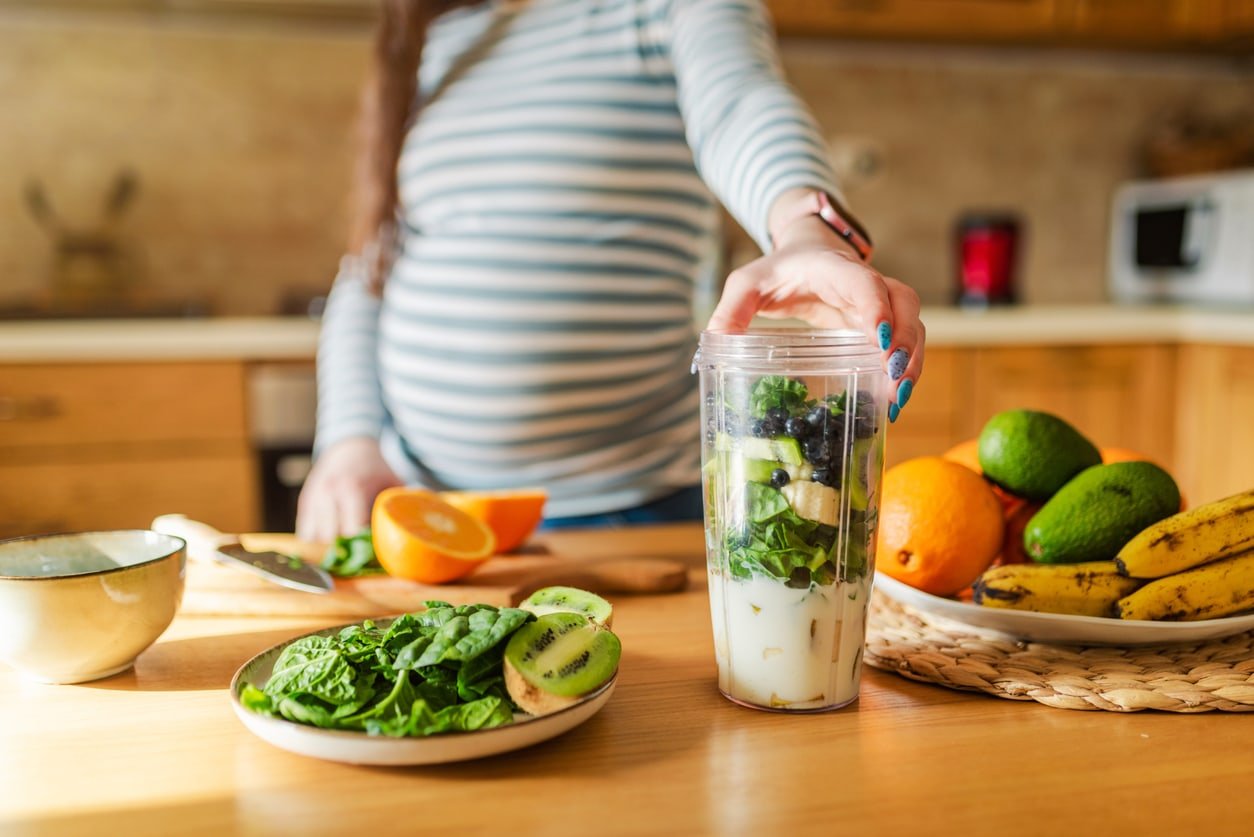During pregnancy, a woman’s body produces more hormones and undergoes various changes. An increasingly common phenomenon with pregnant women is the development of gestational diabetes, even if the mama-to-be did not previously have diabetes. But the good news is you can learn how to prevent gestational diabetes.
Gestational diabetes is a type of diabetes caused by some hormones produced during pregnancy that make insulin less effective, a condition referred to as insulin resistance. Insulin’s job is to regulate blood sugar and help the body use sugars and carbohydrates for energy. Poor diet and abnormally high weight gain can be causes of the development of gestational diabetes along with other risk factors.1
Who is at Risk for Developing Gestational Diabetes?
Although any soon-to-be mama can develop gestational diabetes during pregnancy, some risk factors may play a role. According to the CDC, these risk factors include:2,3
- Being overweight or obese
- Having a family history of diabetes
- Living a sedentary lifestyle or physical inactivity
- Advanced maternal age (women older than 25 are at higher risk)
- Polycystic ovarian syndrome
- Race (Black, Asian, Hispanic, or Latino women are at higher risk)
- A diagnosis of prediabetes
Can Your Diet Lower Your Risk or Prevent Gestational Diabetes?
What you eat before and during pregnancy can contribute to developing gestational diabetes, but your diet is not a direct cause. As mentioned above, pregnancy hormones play a huge role in developing gestational diabetes. However, managing your diet can be an effective way to lower your risk or even prevent it.
So, what does that look like?
Foods That Can Help Prevent Gestational Diabetes
First and foremost, the most important thing you can do as a mama-to-be is to pay attention to your blood sugar levels to prevent episodes of hyperglycemia. This can look like eating a high-fiber diet of fruits, vegetables, lean proteins, whole grains, and healthy fats.
It also means avoiding concentrated sweets, such as soda, candy, cakes, etc., or eating them sparingly and eating meals at regular times.3,4
Eating regularly can be essential to maintain steady blood sugar levels throughout the day, especially for avoiding those large dips or increases in blood sugar. Also, incorporating physical activity into your routine can be crucial. Some ideas include going on a scenic walk, gentle stretching, prenatal yoga, running, or in some cases, resistance training. Regardless of your preference of movement, find an activity you enjoy and can see yourself regularly doing!3,4
Calorie Needs Vary Each Trimester
The stage of your pregnancy plays a role in your daily calorie needs, what foods you should eat for optimal baby growth, and the prevention of gestational diabetes. However, each trimester will bring different symptoms and experiences that may impact your ability to eat optimal foods. But don’t worry; it’s normal.
Foods to Focus on During the First Trimester
You may experience nausea during the first trimester, so you may want to stick to foods easy on the stomach, like pureed or mashed whole grains and starchy vegetables paired with healthy fat or protein to maintain steady blood sugar levels. This may look like mashed potatoes with chicken, oatmeal with nuts, rice and beans, hummus, or bananas with peanut butter. Other foods you may choose to include are leafy greens, fresh fruits, and other veggies you enjoy. Remember to maintain a regular eating schedule and consider eating small frequent meals. During this trimester, there is no increase in caloric needs. Here are some other foods to eat in the first trimester.
Foods to Focus on During the Second Trimester
In the second trimester, your caloric needs increase by 200-300-plus more calories per day. This can look like adding an extra protein or granola bar, one serving of nuts, 2-3 hard-boiled eggs, apples with cheese, etc. Generally, following the guidelines above for maintaining blood sugar, eating fiber with meals, and limiting concentrated sweets is the best way to prevent gestational diabetes. Here are some other foods to eat in the second trimester.
Foods to Focus on During the Third Trimester
Guess what? Caloric needs increase again during the third trimester! Your body needs 300-400 more calories daily than your pre-pregnancy caloric needs. You can add snacks like hummus, roasted veggies with olive oil, blended soups, protein bars, Greek yogurt, cottage cheese, and more. During this time, digestion may slow, so consuming enough fiber to regulate blood sugars and aid in gastrointestinal motility and regular bowel movements is extra important. Large meals may be uncomfortable, so eating smaller meals every two hours may be helpful. Here are some other foods to eat in the third trimester.
Additional Tips and Tricks
- Limit or avoid processed foods.
- Balance your meals and incorporate protein, carbohydrates, fiber, and healthy fats at each mealtime.
- Eat smaller, more frequent meals.
- Maintain a regular eating schedule and don’t skip meals.
Gestational diabetes may not cause symptoms; however, some women experience frequent urination, nausea, thirst, and tiredness. Always consult your doctor if abnormal symptoms arise.3


